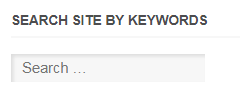
Few things are more frustrating in this needful world than to see useful ideas and hard work ending up anonymously on some distant dusty shelf, real or virtual, and not be accessible to people and groups who could put them to good work, especially at a time of crisis as that we are living through right now. This was one of the challenges we faced at World Streets from the very beginning. How to keep all these good ideas and useful tools alive and available beyond the day on which they were first published and made known to the world.
Flash: 1 March 2018. This entry is somewhat out of date and incomplete as it stands. It is in the process of being updated in the context of our revised and expanded cycle of New Mobility Master Classes. Check it out at https://worldstreets.wordpress.com/tag/master-classes/.
World Streets is thus more than a collaborative blog with a very specific focus; it also offers an extensive site and collection of working materials, references and tools in support of our collective push to more sustainable cities. At this point several thousand articles, tools, images, and other media have been assembled in the family of World Streets sustainability toolkits.
However if World Streets is to be useful as an open library and toolset, we need to be able to offer ways to sort through all this digital chaos, so that our readers can have a chance to find the kind of information or support they are looking for. A kind of Dewey Decimal Code for the 21st century. Fortunately, in combination with WordPress and Google we are able to offer you a very good collection of useful search tools:
These search engines are clustered on the right menu on all pages and ready to go to work for you at a single click.
Search World Streets by keywords

This is the standard WordPress key words search engine. Does a fair job of finding materials in these pages, using the usual Boolean search conventions. But if you need to dig deeper or otherwise . . .
Calendar Search

Calls up all articles that appeared on a given day since the first issue of World Streets in 2008.
Google World Streets
This is an excellent search tool, based on a Google Combined Search Engine. It points not only to the pages of the main World Streets site, but also scans the content of our most important associated programs (Nuova Mobilità, Streets of India, Worst Practices Department, Thinking about China, etc. as well as the most important LinkedIn and Facebook Group sites). If you click this image you will be taken to a simple Google search line which will then query the entire World Streets database.
Search by Topic
Straight forward. Performs as indicated with a drop-down menu.
Search by Month/Year
As above.
Google Mega Searches:
Useful Mega Searches: Interesting. From top to bottom:
- The standard World Streets Google Combined Search Engine
- World Transport: Takes you to a Google Search of the entire publication base of the Journal of World Transport Policy and Practice since Vol. 1, No. 1 appeared in 1995.
- New Mobility Agenda: Searches the vast hinterland of publications, reports, and media under the New Mobility Agenda program since its founding in 1988.
- TRID is an integrated database that combines the records from TRB’s Transportation Research Information Services (TRIS) Database and the OECD’s Joint Transport Research Centre’s International Transport Research Documentation (ITRD) Database. TRID provides access to more than one million records of transportation research worldwide
- * ELTIS: European Local Transport Information Service (information system): The ELTIS database incorporates an ever-growing number of transport case studies, concepts and documentation and bibliographical references that user can look up by using her/his own pre-selected specifications. Wide range of topics is covered, but the main emphasis lies around practical approaches.
# # #
That’s it. If you are a student, teacher, researcher, activist, or a curious citizen wishing to know more about sustainable transport, sustainable cities, and sustainable lives, welcome to World Streets. And if you have any suggestions for us as to how to do better, pleased to not hesitate to get in touch.
About the editor:
Eric Britton
13, rue Pasteur. Courbevoie 92400 France
Bio: Founding editor of World Streets (1988), Eric Britton is an American political scientist, teacher, occasional consultant, and sustainability activist who has observed, learned, taught and worked on missions and advisory assignments on all continents. In the autumn of 2019, he committed his remaining life work to the challenges of aggressively countering climate change and specifically greenhouse gas emissions emanating from the mobility sector. He is not worried about running out of work. Further background and updates: @ericbritton | http://bit.ly/2Ti8LsX | #fekbritton | https://twitter.com/ericbritton | and | https://www.linkedin.com/in/ericbritton/ Contact: climate@newmobility.org) | +336 508 80787 (Also WhatApp) | Skype: newmobility.)





Reblogged this on Nuova Mobilità.
Dear Mr. Eric, Can you send me the European/international or France standards on the luminous intensity of traffic signal lights (red-amber-green lights). Thanks, Regards, F H Mughal (Mr.)
Sorry, wish I could. but this is at a level of technical detail in which I have no competence. Regards/
Pingback: Sustainable Penang – New Look | Sustainable Penang : Toward a New Mobility Agenda